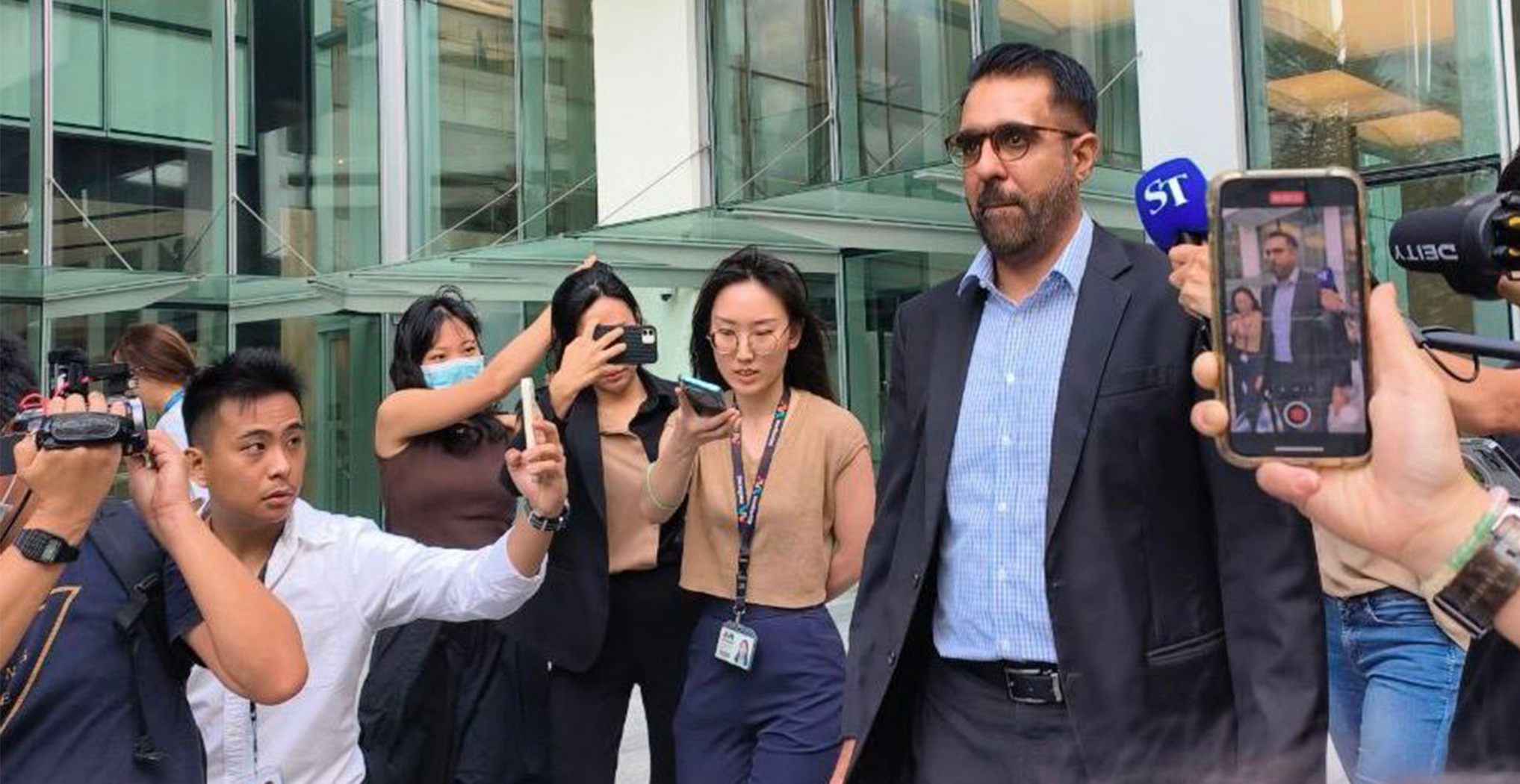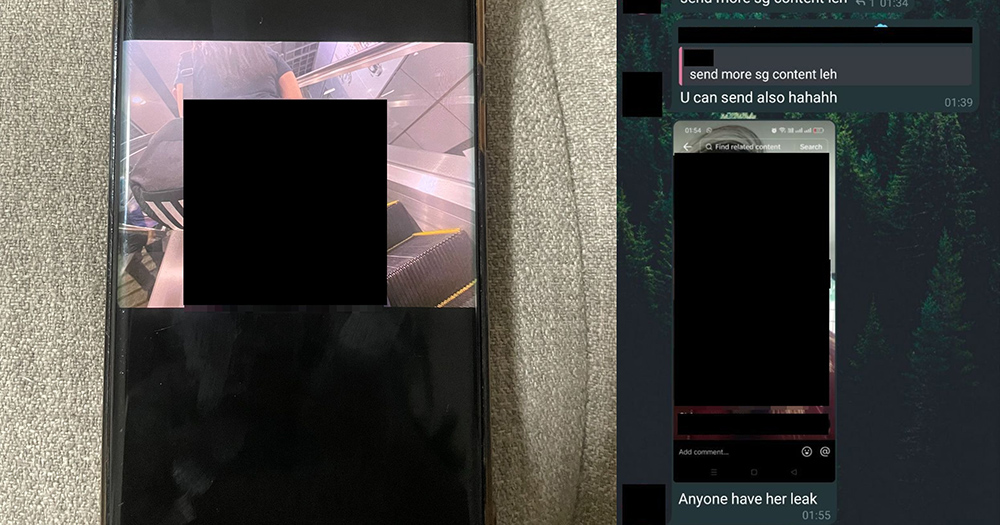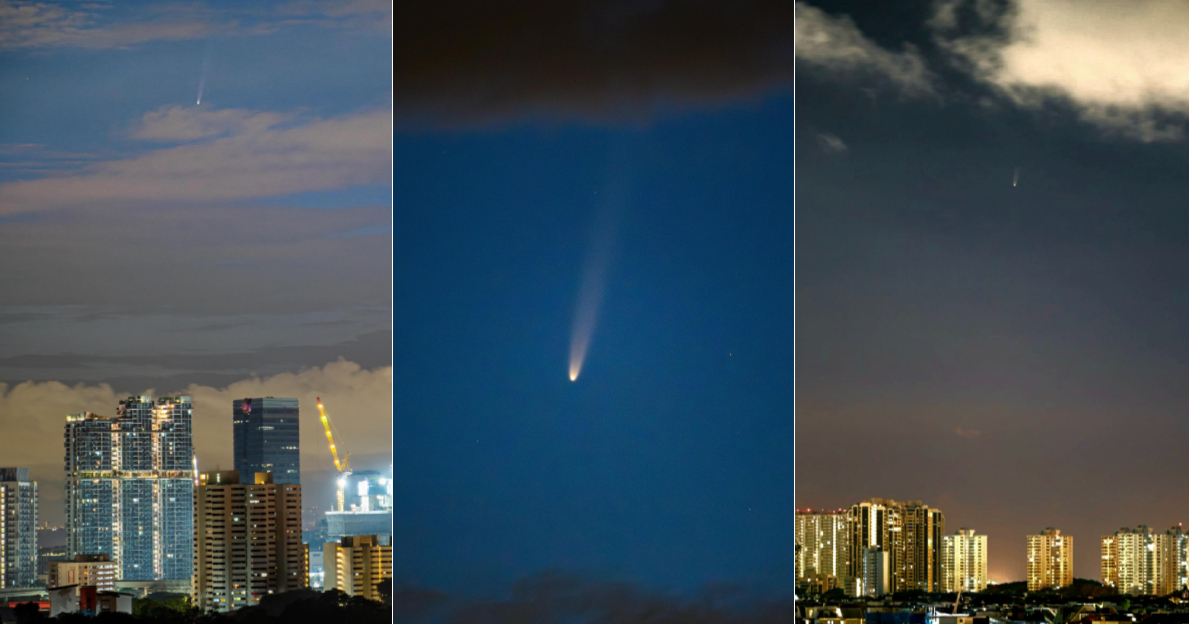ADVERTISEMENT
Pritam Singh applies for transfer of his case to High Court, citing similarity to Iswaran's case
Singh's lawyers argued that there was a "strong public interest" but the prosecution argued that it is a "purely factual inquiry" and there is no rule or interpretation that might arise except to prove whether Singh had lied.

Workers' Party (WP) Secretary-General Pritam Singh, 48, has filed an application to have his legal case transferred to the High Court.
The application was filed "some weeks ago", Singh revealed in a Facebook post, after a hearing in the High Court on the matter on Aug. 26.
ADVERTISEMENT
Singh will be going on trial for two charges under the Parliament (Privileges, Immunities and Powers) Act for lying to a parliamentary committee established in Nov. 2021 to look into the controversy involving former WP Member of Parliament (MP) Raeesah Khan.
The trial has been fixed for a total of 16 days, with the first segment scheduled for Oct. 14 to 18, and is slated to be presided over by Deputy Principal District Judge Luke Tan.
Singh is represented by lawyers Aristotle Emmanuel Eng Zhen Yang and Andre Darius Jumabhoy from Andre Jumabhoy LLC.
The bid
According to The Straits Times, Jumabhoy made arguments to High Court Judge Hoo Sheau Peng in a bid to have the case transferred to the High Court.
He referred to the case of S Iswaran, whose case was transferred to the High Court. In that case, the prosecution applied for the transfer, and the defence agreed to the transfer.
However, in Singh's case, the prosecution opposes the application.
What Singh's lawyers said
Singh's lawyers said that there was a "strong public interest" for Singh's case to be heard in the High Court, CNA reported.
Jumabhoy said that in Iswaran's case, a key consideration in having a High Court judge hear the case was that the law under which he was charged applied to a certain group of individuals.
Thus, the court's decision would impact other people apart from Iswaran.
Jumabhoy said that this consideration applies in Singh's case, as other MPs would be impacted by the court's decision.
“This is a singular and unique set of issues that warrants consideration by the High Court,” he said.
Deputy Attorney-General's response
Deputy Attorney-General Ang Cheng Hock said there can be no comparison between the two cases.
Ang said that in Iswaran's case, there public interest as he faces charges under Section 165 of the Penal Code, which makes it an offence for a public servant to obtain items, for free or inadequate payment, from any person connected with his official duties.
He further elaborated that the reason why the prosecution asked for Iswaran’s case to be transferred was the potential impact of the interpretation of the provision, which would impact civil servants in a wide range of different roles.
These considerations do not apply in Singh's case, Ang said.
In Singh's case, the sole issue is whether the prosecution can prove beyond reasonable doubt that Singh had lied while giving answers to the committee, which Ang described as a "purely factual inquiry".
He clarified that "public interest" refers to what is in the public good, and not the fact that members of the public are interested in a case.
Background of Singh's application
Singh's application was initially made under Section 240 of the Criminal Procedure Code, Ang said.
The prosecution then said that they were "unable to accede to this request".
Ang said that at this point, Singh and his lawyers should have applied for a judicial review of the prosecution's decision.
Instead, he pointed out that Singh's lawyers filed a criminal motion under Section 239 of the Criminal Procedure Code instead.
Ang said that under that section, Singh would need to show that he would be unlikely to obtain a fair and impartial trial by the State Courts.
ADVERTISEMENT
Section 239 of the Criminal Procedure Code states that the High Court may order a transfer for any of three reasons:
- A fair and impartial trial cannot be had in any State Court.
- Some question of law of unusual difficulty is likely to arise.
- A transfer of the case is expedient for the ends of justice or is required by the Criminal Procedure Code or any other written law.
Singh: Court's interpretation of the Parliament Act may impact members of the public
In his Aug. 26 Facebook post, Singh explained that a case can be transferred by the public prosecutor on his own accord (which occurred in Iswaran's case) or via an application by the accused person.
He explained his lawyer's arguments about the similarity to Iswaran's case, and said their stance on what constituted "public interest" differed from the prosecution's.
He also said that the charges he faces, under section 31(q) of the Parliament Act, arose from the findings of Parliament’s Committee of Privileges.
Thus, he said, the Court’s interpretation of that section and what powers Parliament has under the section could be impactful, as it has implications for members of the public, who could be called to appear before a Committee of Privileges.
The case has been adjourned to Sep. 9.
You can see Singh's post here:
ADVERTISEMENT
Related stories
Top photo via Mothership
ADVERTISEMENT

ADVERTISEMENT
ADVERTISEMENT
MORE STORIES





















